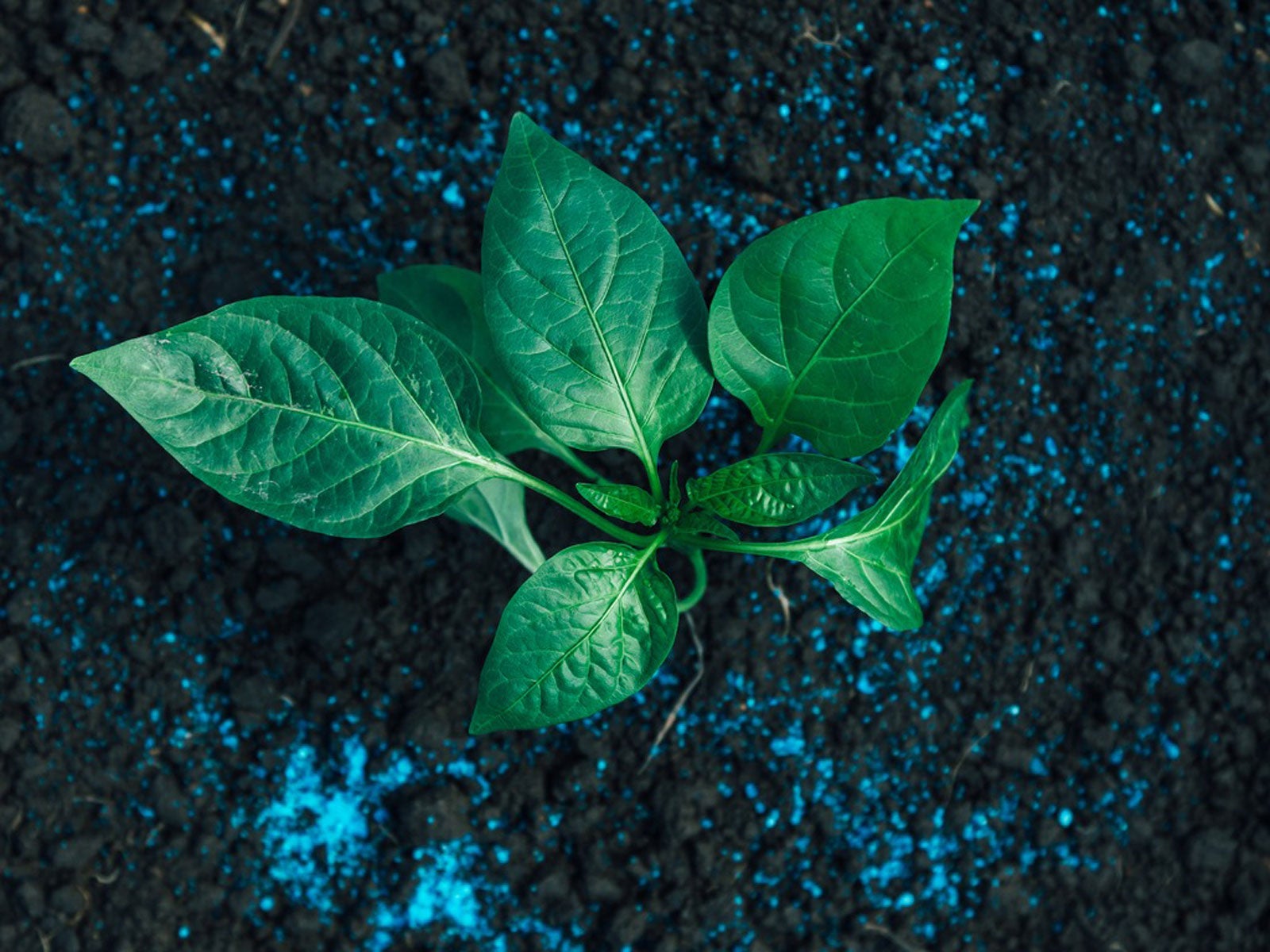Best Fertilizers for Peppers: Attain Superior Results in Your Yard
Best Fertilizers for Peppers: Attain Superior Results in Your Yard
Blog Article
Organic Vs. Synthetic Fertilizers: Which Is Best for Nurturing Healthy And Balanced Pepper Plants?
In the world of supporting healthy pepper plants, the choice in between natural and synthetic plant foods stands as a crucial decision with far-reaching ramifications. While both options objective to give important nutrients to sustain plant growth, the subtleties of their influence on the dirt, plant health, and the setting spark an argument that echoes throughout the horticulture community. Recognizing the unique advantages and possible mistakes of each plant food type is crucial for pepper growers looking for to enhance their returns while maintaining a lasting and eco-conscious technique.
Advantages of Organic Plant Foods
Organic fertilizers supply an environmentally-friendly and lasting method to beneficial pepper plants, providing essential nutrients without the use of synthetic chemicals. These natural fertilizers are stemmed from natural resources such as garden compost, manure, bone meal, and algae, advertising soil wellness and biodiversity. Unlike artificial fertilizers, organic choices launch nutrients slowly, guaranteeing a balanced and steady supply for pepper plants to flourish.
One substantial benefit of natural fertilizers is their capacity to boost dirt framework and water retention. By improving dirt wellness, natural plant foods advertise beneficial microbial task, which aids in nutrient uptake by pepper plants. Furthermore, organic fertilizers lower the risk of chemical run-off, shielding water sources from pollution and safeguarding the setting.
Additionally, natural plant foods contribute to lasting dirt fertility by advertising the growth of useful soil organisms. These organisms assist damage down raw material, launching nutrients in a kind that is conveniently accessible to pepper plants. best fertilizers for peppers. By cultivating a healthy and balanced soil environment, natural plant foods support sustainable pepper cultivation practices that profit both plants and the atmosphere
Disadvantages of Artificial Fertilizers
Artificial fertilizers, in comparison to their organic equivalents, pose various downsides when used to nourish pepper plants, impacting both plant wellness and ecological sustainability. One significant drawback of artificial plant foods is their tendency to leach nutrients from the dirt swiftly.
Furthermore, the overuse of synthetic plant foods can add to water pollution. Excess plant foods not absorbed by plants can get rid of right into water bodies, causing eutrophication, where algae blooms deplete oxygen levels in the water, hurting water life. Synthetic fertilizers are normally derived from non-renewable resources, such as fossil gas, adding to carbon emissions and ecological deterioration throughout their production.
Nutrient Absorption Contrast
When comparing natural and synthetic plant foods in terms of nutrient absorption, natural plant foods have the benefit of supplying a much more well balanced and slow-release source of nutrients. Organic fertilizers have a range of macro and micronutrients that are not just helpful for the plants however additionally advertise healthy soil microbial activity, which assists in nutrient uptake.
Furthermore, natural plant foods improve soil framework and water retention capacity, allowing pepper plants to access nutrients a lot more successfully. This improved soil high quality assists in root development, allowing better nutrient absorption. Artificial fertilizers, although initially enhancing plant growth as a result of their high nutrient concentrations, might prevent lasting nutrient absorption by derogatory soil health over time.
Environmental Effect Factors To Consider

On the other hand, synthetic fertilizers, although often even more focused and immediately offered to plants, can have damaging effects on the environment if not used appropriately (best fertilizers for peppers). Their production requires high power inputs, leading to greenhouse gas discharges and adding to climate change. Additionally, the drainage of excess synthetic fertilizers can infect water resources, resulting in eutrophication and harming aquatic communities.
Ideal Plant Food Practices for Peppers
When feeding pepper plants, optimizing nutrient uptake and lessening environmental effect are crucial factors to consider. To achieve this, it is necessary to adhere to ideal fertilizer methods customized to the certain needs of pepper plants. One vital practice is to do a dirt test before using any kind of fertilizers. This test can determine the pH degree of the soil and determine any type of nutrient deficiencies, leading you in selecting one of the most appropriate fertilizer formulation.
One more important pop over to this web-site technique is to feed pepper plants at the correct time. Typically, peppers take advantage of obtaining plant food at planting and then again when they start to blossom. Over-fertilizing can lead to vitamins and mineral imbalances and hurt the plants, so it is essential to follow recommended application prices.
Additionally, picking a balanced plant food with an NPK proportion that fits pepper plants' needs is essential. Eventually, integrating synthetic and natural plant foods carefully can assist support healthy pepper plants while reducing ecological impact.
Conclusion

Organic fertilizers use an environmentally-friendly and sustainable technique to nourishing pepper plants, offering necessary nutrients without the usage of synthetic chemicals. Unlike synthetic plant foods, organic alternatives launch nutrients slowly, making certain a constant and balanced supply for pepper plants to thrive.
Artificial fertilizers, in comparison to their natural counterparts, present numerous negative aspects when utilized to nurture pepper plants, affecting both plant health and wellness and environmental sustainability. When contrasting artificial and natural fertilizers in terms of nutrient absorption, organic fertilizers have the advantage of offering an extra balanced and slow-release resource of nutrients.Furthermore, organic plant foods boost dirt structure and water retention capability, permitting pepper plants to gain access to nutrients much more successfully.
Report this page